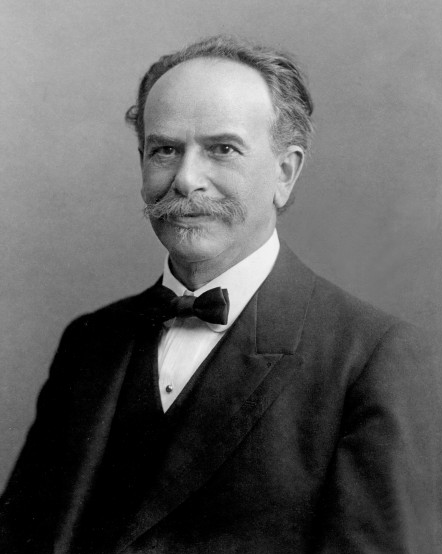|
Developmental Model Of Intercultural Sensitivity (DMIS)
The Bennett scale, also called the Developmental Model of Intercultural Sensitivity (DMIS), was developed by Milton Bennett. The framework describes the different ways in which people can react to cultural differences. Bennett's initial idea was for trainers to utilize the model to evaluate trainees' intercultural awareness and help them improve intercultural sensitivity, also sometimes referred to as cultural sensitivity, which is the ability of accepting and adapting to a brand new and different culture. Organized into six stages of increasing sensitivity to difference, the DMIS identifies the underlying cognitive orientations individuals use to understand cultural difference. Each position along the continuum represents increasingly complex perceptual organizations of cultural difference, which in turn allow increasingly sophisticated experiences of other cultures. By identifying the underlying experience of cultural difference, predictions about behavior and attitudes can be ma ... [...More Info...] [...Related Items...] OR: [Wikipedia] [Google] [Baidu] |
Milton Bennett
Milton James Bennett, often cited as Milton J. Bennett, is an American sociologist. He is credited as the creator of Developmental Model of Intercultural Sensitivity (DMIS). Bennett was a tenured professor at Portland State University and is now an adjunct professor of intercultural studies in the Department of Sociology of the University of Milano Bicocca. He has received prizes from the Society for Intercultural Education, Training and Research (SIETAR) and from NAFSA: Association of International Educators. Books * ''Basic Concepts of Intercultural Communication: Paradigms, Principles, and Practices'', Intercultural Press, 2013 * ''The Handbook of Intercultural Training'' (ed.), SAGE Publishing Sage Publishing, formerly SAGE Publications, is an American Independent business, independent Academic publishing, academic publishing company, founded in 1965 in New York City by Sara Miller McCune and now based in the Newbury Park, California, ..., 2004 * ''American Cultural ... [...More Info...] [...Related Items...] OR: [Wikipedia] [Google] [Baidu] |
Cultural Difference
Cultural diversity is the quality of diverse or different cultures, as opposed to monoculture. It has a variety of meanings in different contexts, sometimes applying to cultural products like art works in museums or entertainment available online, and sometimes applying to the variety of human cultures or traditions in a specific region, or in the world as a whole. It can also refer to the inclusion of different cultural perspectives in an organization or society. Cultural diversity can be affected by political factors such as censorship or the protection of the rights of artists, and by economic factors such as free trade or protectionism in the market for cultural goods. Since the middle of the 20th century, there has been a concerted international effort to protect cultural diversity, involving the United Nations Educational, Scientific and Cultural Organization (UNESCO) and its member states. This involves action at international, national, and local levels. Cultural diversity ... [...More Info...] [...Related Items...] OR: [Wikipedia] [Google] [Baidu] |
Cultural Sensitivity
Cultural sensitivity, also referred to as cross-cultural sensitivity or cultural awareness, is the knowledge, awareness, and acceptance of other cultures and others' cultural identities. It is related to cultural competence (the skills needed for effective communication with people of other cultures, which includes cross-cultural competence), and is sometimes regarded as the precursor to the achievement of cultural competence, but is a more commonly used term. On the individual level, cultural sensitivity is a state of mind regarding interactions with those different from oneself. Cultural sensitivity enables travelers, workers, and others to successfully navigate interactions with a culture other than their own. Cultural diversity includes demographic factors (such as race, gender, and age) as well as values and cultural norms. Cultural sensitivity counters ethnocentrism, and involves intercultural communication, among relative skills. Most countries' populations include mino ... [...More Info...] [...Related Items...] OR: [Wikipedia] [Google] [Baidu] |
Ethnocentric
Ethnocentrism in social science and anthropology—as well as in colloquial English discourse—means to apply one's own culture or ethnicity as a frame of reference to judge other cultures, practices, behaviors, beliefs, and people, instead of using the standards of the particular culture involved. Since this judgment is often negative, some people also use the term to refer to the belief that one's culture is superior to, or more correct or normal than, all others—especially regarding the distinctions that define each ethnicity's cultural identity, such as language, behavior, customs, and religion. In common usage, it can also simply mean any culturally biased judgment. For example, ethnocentrism can be seen in the common portrayals of the Global North and Global South, Global South and the Global North. Ethnocentrism is sometimes related to racism, Stereotype, stereotyping, discrimination, or xenophobia. However, the term "ethnocentrism" does not necessarily involve a negati ... [...More Info...] [...Related Items...] OR: [Wikipedia] [Google] [Baidu] |
Culture
Culture ( ) is a concept that encompasses the social behavior, institutions, and Social norm, norms found in human societies, as well as the knowledge, beliefs, arts, laws, Social norm, customs, capabilities, Attitude (psychology), attitudes, and habits of the individuals in these groups.Tylor, Edward. (1871). ''Primitive Culture''. Vol 1. New York: J. P. Putnam's Son Culture often originates from or is attributed to a specific region or location. Humans acquire culture through the learning processes of enculturation and socialization, which is shown by the diversity of cultures across societies. A cultural norm codifies acceptable conduct in society; it serves as a guideline for behavior, dress, language, and demeanor in a situation, which serves as a template for expectations in a social group. Accepting only a monoculturalism, monoculture in a social group can bear risks, just as a single species can wither in the face of environmental change, for lack of functional respo ... [...More Info...] [...Related Items...] OR: [Wikipedia] [Google] [Baidu] |
Ethnocentrism
Ethnocentrism in social science and anthropology—as well as in colloquial English discourse—means to apply one's own culture or ethnicity as a frame of reference to judge other cultures, practices, behaviors, beliefs, and people, instead of using the standards of the particular culture involved. Since this judgment is often negative, some people also use the term to refer to the belief that one's culture is superior to, or more correct or normal than, all others—especially regarding the distinctions that define each ethnicity's cultural identity, such as language, behavior, customs, and religion. In common usage, it can also simply mean any culturally biased judgment. For example, ethnocentrism can be seen in the common portrayals of the Global South and the Global North. Ethnocentrism is sometimes related to racism, stereotyping, discrimination, or xenophobia. However, the term "ethnocentrism" does not necessarily involve a negative view of the others' race or indica ... [...More Info...] [...Related Items...] OR: [Wikipedia] [Google] [Baidu] |
Cultural Diversity
Cultural diversity is the quality of diverse or different cultures, as opposed to Monoculturalism, monoculture. It has a variety of meanings in different contexts, sometimes applying to cultural products like art works in museums or entertainment available online, and sometimes applying to the variety of human cultures or traditions in a specific region, or in the world as a whole. It can also refer to the inclusion of different cultural perspectives in an organization or society. Cultural diversity can be affected by political factors such as censorship or the protection of the rights of artists, and by economic factors such as free trade or protectionism in the market for cultural goods. Since the middle of the 20th century, there has been a concerted international effort to protect cultural diversity, involving the UNESCO, United Nations Educational, Scientific and Cultural Organization (UNESCO) and its member states. This involves action at international, national, and local le ... [...More Info...] [...Related Items...] OR: [Wikipedia] [Google] [Baidu] |
Stereotyping
In social psychology, a stereotype is a generalized belief about a particular category of people. It is an expectation that people might have about every person of a particular group. The type of expectation can vary; it can be, for example, an expectation about the group's personality, preferences, appearance or ability. Stereotypes make information processing easier by allowing the perceiver to rely on previously stored knowledge in place of incoming information. Stereotypes are often faulty, inaccurate, and resistant to new information. Although stereotypes generally have negative implications, they aren't necessarily negative. They may be positive, neutral, or negative. They can be broken down into two categories: explicit stereotypes, which are conscious, and implicit stereotypes, which are subconscious. Explicit stereotypes An explicit stereotype is a belief about a group that a person is consciously aware of and knowingly uses to judge others. If person ''A ''is mak ... [...More Info...] [...Related Items...] OR: [Wikipedia] [Google] [Baidu] |
Universal Value
A value is a universal value if it has the same value or worth for all, or almost all, people. Spheres of human value encompass morality, aesthetic preference, traits, human endeavour, and social order. Whether universal values exist is an unproven conjecture of moral philosophy and cultural anthropology, though it is clear that certain values are found across a great diversity of human cultures, such as primary attributes of physical attractiveness (e.g. youthfulness, symmetry) whereas other attributes (e.g. slenderness) are subject to aesthetic relativism as governed by cultural norms. This objection is not limited to aesthetics. Relativism concerning morals is known as moral relativism, a philosophical stance opposed to the existence of universal moral values. The claim for universal values can be understood in two different ways. First, it could be that something has a universal value when everybody ''finds'' it valuable. This was Isaiah Berlin's understanding of the te ... [...More Info...] [...Related Items...] OR: [Wikipedia] [Google] [Baidu] |
Worldview
A worldview (also world-view) or is said to be the fundamental cognitive orientation of an individual or society encompassing the whole of the individual's or society's knowledge, culture, and Perspective (cognitive), point of view. However, when two parties view the same real world phenomenon, their world views may differ, one including elements that the other does not. A worldview can include natural philosophy; fundamental, existential, and normative postulates; or themes, values, emotions, and ethics. Etymology The term ''worldview'' is a calque of the German word , composed of ('world') and ('perception' or 'view'). The German word is also used in English. It is a concept fundamental to German philosophy, especially epistemology and refers to a ''wide world perception''. Additionally, it refers to the framework of ideas and beliefs forming a global description through which an individual, group or culture watches and interprets the world (philosophy), world and interac ... [...More Info...] [...Related Items...] OR: [Wikipedia] [Google] [Baidu] |
Multiculturalism
Multiculturalism is the coexistence of multiple cultures. The word is used in sociology, in political philosophy, and colloquially. In sociology and everyday usage, it is usually a synonym for ''Pluralism (political theory), ethnic'' or cultural pluralism in which various ethnic and cultural groups exist in a single society. It can describe a mixed ethnic community area where multiple cultural traditions exist or a single country. Groups associated with an Indigenous peoples, indigenous, aboriginal or wikt:autochthonous, autochthonous ethnic group and settler-descended ethnic groups are often the focus. In reference to sociology, multiculturalism is the end-state of either a natural or artificial process (for example: legally controlled immigration) and occurs on either a large national scale or on a smaller scale within a nation's communities. On a smaller scale, this can occur artificially when a jurisdiction is established or expanded by amalgamating areas with two or more di ... [...More Info...] [...Related Items...] OR: [Wikipedia] [Google] [Baidu] |





